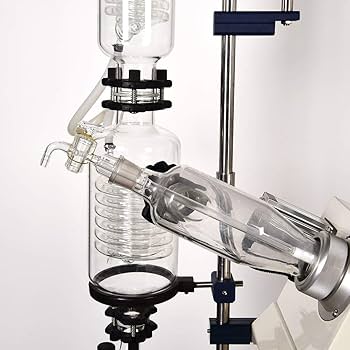In modern scientific research and industrial applications, efficiency and precision are crucial for achieving high-quality results. Laboratories worldwide rely on advanced equipment to streamline processes, improve accuracy, and enhance productivity. Among the most essential tools are rotary evaporators and temperature control units, which play a vital role in various chemical, pharmaceutical, and biological applications. These instruments help ensure precise solvent removal, sample concentration, and temperature regulation, making them indispensable in research and development settings. Rotary evaporators, commonly known as rotavaps, are designed to facilitate efficient solvent evaporation under reduced pressure. By using a rotating flask, these devices increase the surface area of the liquid, allowing for faster and more controlled evaporation. The combination of vacuum pressure, gentle heating, and continuous rotation ensures that sensitive compounds are preserved while maximizing yield. Whether in academic research, pharmaceuticals, or industrial chemistry, rotary evaporators provide an essential solution for rapid and efficient solvent removal.

Temperature control units complement rotary evaporators by maintaining precise thermal conditions throughout the evaporation process. These units, Gwsi often equipped with advanced heating and cooling capabilities, ensure that temperature-sensitive substances remain stable during evaporation, crystallization, and distillation. Accurate temperature regulation is especially critical in applications such as organic synthesis, where fluctuations can compromise the integrity of a reaction or degrade valuable compounds. With modern temperature control systems, laboratories can achieve consistency and reproducibility in their experiments. One of the key benefits of utilizing high-quality rotary evaporators and temperature control units is the optimization of laboratory workflows. Time efficiency is a crucial factor in research and production environments, and these instruments significantly reduce processing time while improving safety and reliability. Features such as digital controls, programmable settings, and automated operation minimize human error and allow researchers to focus on data analysis rather than manual monitoring. As a result, laboratories can increase throughput without sacrificing quality or precision.
Sustainability and cost-effectiveness are also important considerations when selecting laboratory equipment. Energy-efficient rotary evaporators and temperature control units help reduce power consumption, lowering operational costs over time. Additionally, advanced designs minimize solvent loss, contributing to a safer and more environmentally friendly working environment. By investing in reliable and durable equipment, laboratories can reduce maintenance requirements and extend the lifespan of their instruments, ultimately improving long-term financial sustainability. As the demand for high-performance laboratory equipment continues to grow, innovations in rotary evaporation and temperature control technology are shaping the future of scientific research. Enhanced automation, improved safety features, and integration with digital data management systems are transforming laboratory efficiency. By adopting state-of-the-art solutions, research institutions and industries can maintain the highest standards of accuracy and productivity, ensuring that their work remains at the forefront of scientific advancement. These technologies not only support the development of new materials and chemical formulations but also enhance sustainability by reducing waste and energy consumption.